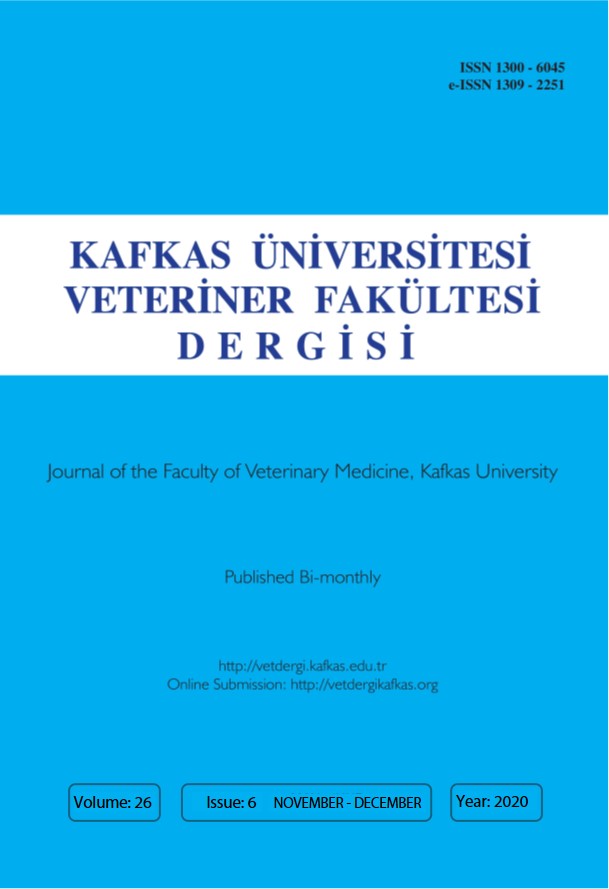
This journal is licensed under a Creative Commons Attribution-NonCommercial 4.0 International License
Kafkas Üniversitesi Veteriner Fakültesi Dergisi
2020 , Vol 26 , Issue 6
Early Markers of Mesenteric Artery Ischemia in Rats
1Ankara 29 Mayıs Hospital, Department of Surgery, TR-06105 Ankara - TURKEY2University of Health Sciences, Ankara City Hospital, Department of Anesthesiology and Reanimation, TR-06800 Ankara - TURKEY DOI : 10.9775/kvfd.2020.24393 Acute mesenteric ischemia (AMI) is a disease with high mortality (60%-80%). Although it has different etiological causes, the common outcomes are intestinal necrosis and gangrene. The survival rate is reported to be 30-40% on average. Therefore, there is a need for biomarkers to assist the diagnosis. In this study, the early diagnostic values of procalcitonin, lactate, amylase and ferritin levels in AMI were investigated. The rats were divided into two groups:: Control group (Group 1, n=8) consisted of rats which underwent laparotomy only, Study group (Group 2, n=8) consisted of rats who underwent ligation of the superior mesenteric artery (SMA) from the aortic outflow tract to create an experimental ischemia model. Blood samples were taken from both groups at hours 0, 2, 6, 12, and 24, and procalcitonin, lactate, amylase and ferritin levels were compared. Lactate and amylase levels increased in blood in the study group, starting at the 6h after SMA ligation until 24h. Amylase and lactate levels can be used early diagnostic biomarkers in AMI. Increase in procalcitonin level was only significant at the 6h. Ferritin levels did not change in the first 24h and hence can not be considered as an acute phase reactant. Keywords : Acute mesenteric ischemia, Procalcitonin, Lactate, Amylase, Ferritin










